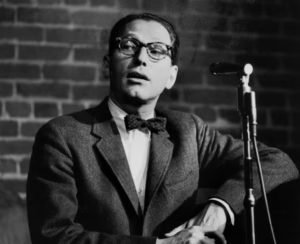Chuck Mangione Dead at 84: Jazz Legend Behind “Feels So Good” and Olympic Classics
Growing Legacy of Smooth Jazz Pioneer Chuck Mangione
Grammy-winning flugelhorn artist Chuck Mangione, famed for his timeless hit “Feels So Good,” passed away peacefully in his sleep at his Rochester, New York home on July 22, 2025, at the age of 84. His family formally announced the news via a statement on July 24, reflecting on his boundless energy and deep connection with fans.

Raised in a jazz‑rich household in Rochester alongside his brother Gap Mangione, Chuck’s early exposure to legends like Dizzy Gillespie shaped a career spanning six decades. A graduate and later director of the Eastman School of Music’s jazz ensemble, Mangione released more than 30 albums and earned two Grammys among 14 nominations.
Feels So Good: the phrase itself evokes nostalgia, warmth, and unmistakable melody. It is emblematic not just of a hit song, but of a musical spirit that bridged jazz and mainstream culture. Chuck Mangione’s passing on July 22, 2025, marks the end of an era—yet his legacy continues to resonate through every note of his beloved compositions, Olympic anthems, and cultural appearances. This tribute dives deep into the life, music, and lasting influence of the iconic flugelhorn maestro.
Early Life & Musical Roots
Chuck Mangione was born on November 29, 1940, in Rochester, New York, into a home steeped in jazz tradition. His father fostered early appreciation by hosting jazz greats—including Carmen McRae and Art Blakey—for home‑cooked meals, with young Chuck and his brother absorbing the rhythms and stories firsthand. He began his formal training at Rochester’s Eastman School of Music in 1958 and played trumpet before transitioning to the flugelhorn, later directing Eastman’s jazz ensemble (1968–1972).
Mangione’s professional career began with his brother in The Jazz Brothers and took a pivotal turn when he joined Art Blakey’s Jazz Messengers in the 1960s, filling the trumpet seat earlier held by legends like Freddie Hubbard and Lee Morgan.
Breakthrough & Signature Hits
The release of Feels So Good in 1977 catapulted Mangione to international fame. The instrumental single soared to No. 4 on the Billboard Hot 100 and became one of the most recognizable jazz tracks ever recorded, eventually going double‑platinum. Its gentle groove and melodic clarity made it a soundtrack staple in everything from films to commercials.
His follow‑up Olympic theme, “Give It All You Got,” for the 1980 Winter Olympics, further solidified his public profile. Mangione performed it live during the closing ceremony in Lake Placid, becoming part of global broadcast history. Earlier, “Chase the Clouds Away” was featured in coverage of the 1976 Summer Olympics.
Career Highlights & Accolades
Over his more than fifty-year career, Mangione released 30+ albums and earned 14 Grammy nominations, winning for Bellavia (1977) and The Children of Sanchez soundtrack (1979). He also received a Golden Globe nomination for his film score work.
Despite his mainstream success and occasional criticism for a “soft jazz” aesthetic, Mangione remained true to his musical convictions—recording only what he loved and refusing to compromise artistic integrity. His peers praised him not only for his accessibility but for his genuine jazz chops and teaching.
Cultural Footprint & Popular Image
Mangione’s recurring role as himself on the animated sitcom King of the Hill introduced him to new audiences. In the show, he appeared as a caricatured celebrity spokesperson for Mega Lo Mart, always playing a horn riff that somehow morphed into “Feels So Good.” The role, featured in episodes as early as 1997 through the series finale in 2009, revealed his comedic side and self-awareness about his persona.
He also placed himself in pop culture through the placement of songs in shows and films like Fargo, Doctor Strange, Friends, South Park, The Simpsons, and The Big Bang Theory, ensuring his music remained woven into modern storytelling. EW.com
Legacy & Community Impact
Mangione remained closely tied to his Rochester roots. In 2012, he was inducted into the Rochester Music Hall of Fame. In 2009, he donated memorabilia—including his iconic felt hat and original “Feels So Good” score—to the Smithsonian’s National Museum of American History.
Locally, his family-owned grocery store famously stayed open during the 1964 Rochester riots, reflecting a deep bond between the Mangione family and the community—a spirit echoed in Chuck’s music, described by the city’s mayor as a reflection of “strength, resilience, and compassion.” WHEC.com
Although he retired from public performance in 2015, Mangione remained active as a mentor, educator, and occasional performer for youth music programs in Rochester. The Washington Post
Conclusion
Chuck Mangione’s warm melodies and vibrant personality broke barriers between jazz and mainstream music. He achieved rare commercial success while maintaining deep roots in serious jazz education and musicianship. From brunch playlists to Olympic stadiums, from animated television satire to community goodwill, his music resonated across cultures and generations.
His passing on July 22, 2025, marks the end of a personal era—but his notes continue to echo. Chuck Mangione’s ability to connect with fans, inspire future musicians, and bring jazz into the mainstream ensures his legacy will play on, long after the final refrain.
Subscribe to trusted news sites like USnewsSphere.com for continuous updates.





